
Substance use disorder (SUD) is a complex health condition that affects millions of people. OPEN supports evidence-based, patient-centered care by providing resources across the continuum of care—including education on risky substance use and surgery, medication for opioid use disorder, and pain management.
Surgical care providers have a unique position in SUD management. Through preoperative assessment, careful intraoperative pain control, and vigilant postoperative pain management surgical teams can minimize risk of new persistent opioid use and connect patients to longer term care options.
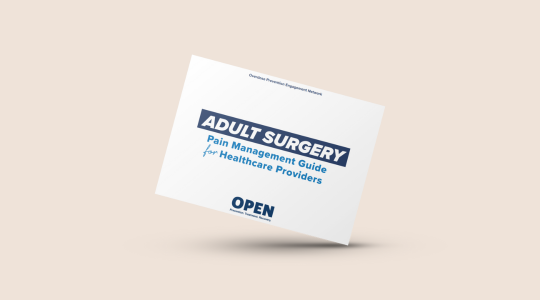
As a healthcare provider, learn evidence-based approaches to help manage your patient’s pain after surgery.
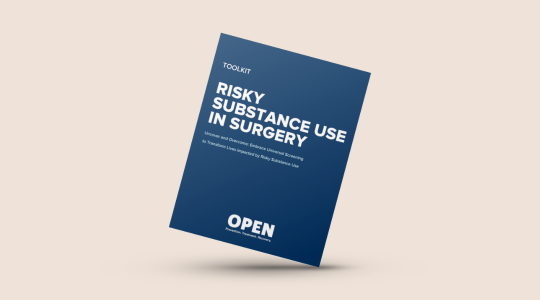
Learn more about how risky substance use impacts patients having surgery and best practices for identification and coordination of care for those with risky use.
There are many evidence-based treatments available for SUD, ranging from behavioral therapies to pharmacological interventions. Learn more about their tailored applications in supporting the recovery process.
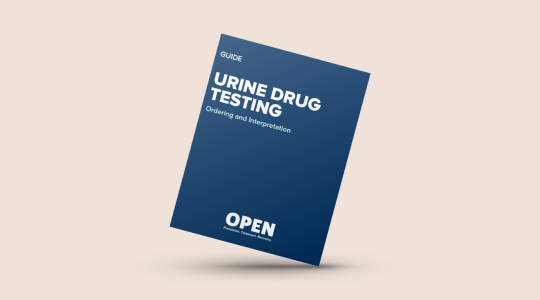
Use this guide to help order urine testing and interpret the results.
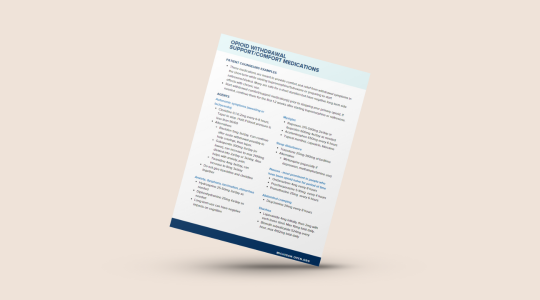
This resource will help providers successfully provide withdrawal comfort and support.
Treatment is not a one-size-fits-all and there is a range of evidence-based treatment options available for substance use disorder (SUD). Whether you are looking for support groups, peer recovery services, or trying to understand how to access treatment, this is a guide to help connect you to the care that best fits your needs.
Seeing patients for an array of reasons, primary care providers can screen patients for risky substance use as well as provide evidence-based treatment and management for SUD.

This free, 1-hour CME course will discuss barriers to accessing MOUD and low-barriers practices that can enhance access to MOUD treatment.

This free, 3-hour CE course will empower primary care providers to directly impact the opioid epidemic by learning best-practice care strategies.
Opioid Use Disorder (OUD) in pregnancy is an increasingly urgent public health issue. In the U.S., the prevalence of OUD in pregnancy has doubled in the past decade.
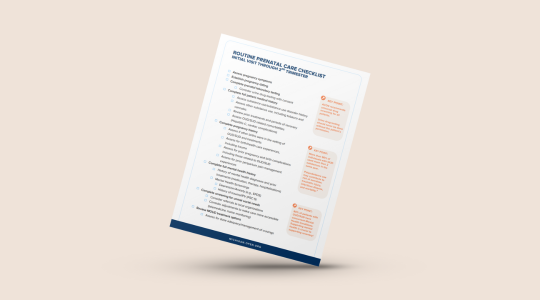
This practical checklist guides comprehensive routine prenatal care from the first prenatal visit through the second trimester, with integrated assessment of substance use, mental health, medical history, and supports to ensure coordinated, person-centered care.
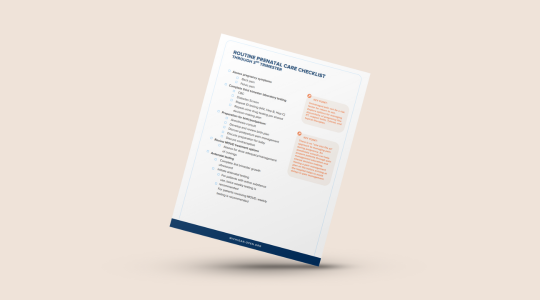
This practical checklist guides comprehensive routine prenatal care through the third trimester, with integrated assessment of substance use, mental health, medical history, and supports to ensure coordinated, person-centered care.